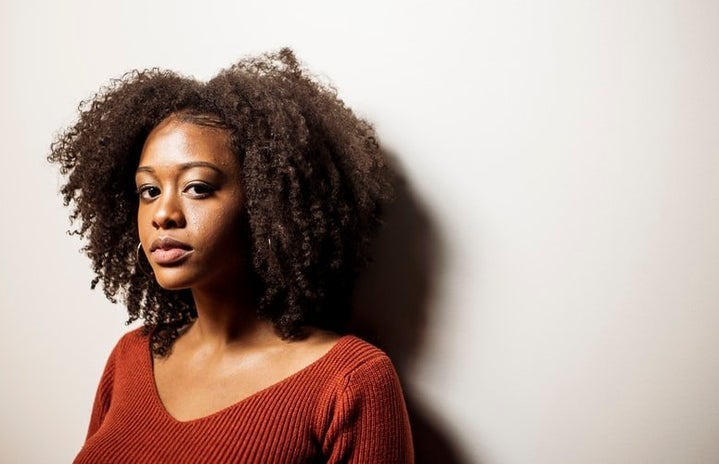It’s Black History Month and that means we get the chance to sit back and reflect on the many accomplishments that Black people across the world have made. But February should not be the only month we do this. Black history spans across centuries and centuries, and condensing all that history into a few modules in school over the course of about 3.5 weeks is not enough. We as students always hear about the same people: Martin Luther King and Rosa Parks, and as important as their contributions to the Civil Rights movement are, Black History is not just a few famous faces sprinkled into 10 pages of a 300-page textbook.
Up until high school I had only known about a few names and I had always wondered why I heard the same few names every year. It bothered me that I always had a project on one of about three people even though I knew there were so many more people who had made countless contributions to causes across the world.
In elementary school, I had primarily white male instructors who assigned us a quick project where we would stand up in front of the class, talk for ten minutes about someone that the teacher had heard about thirty other times before, which ultimately meant we were being graded on how pretty our poster board was as opposed to the information we had provided. As I moved to middle school, Black History Month had been reduced to nothing more than a two hour assembly at the end of the month. Can you spot the issue?
I went from a meaningless project about one of five or so options of Black historical figures to a two hour assembly at the end of the month. It could be argued that the project helped me understand information about those historical figures, but given that I was always learning about those same five Black Historical figures for all five of the years that I attended elementary school, I had essentially learned nothing.
To make matters worse, Black History Month was about the only time any of the teachers in my predominantly white middle and elementary school chose to teach us anything about Black History. For three weeks of a nine month school year, we learned about five people and of those five people, only four were really good because my teacher’s often implied that Malcom X ought to be vilified, not celebrated.
I often wonder if it was not for my own curiosity, how much information about Black History I would have really discovered in the American education system, and how accurate the accounts told to me in the single 20 page chapter in my textbook, taught to me over the course of about 3 weeks, really were. Those textbooks had a way of presenting the information about Black History in America in a particularly “sweet” manner. They always managed to leave out the most brutal, disgusting, and vile things America did to African Americans and other Black people around the world.
As we celebrate another Black History Month coming off of the tail end of the seismic Black Lives Matter Movement in the summer of 2020, I had the chance to reflect on my experiences learning Black history in America, and how the events of the summer parallel the experiences I have had learning Black History in school.
To put it frankly, the performative activism we saw from countless people in the summer mirrors the performative Black History lessons we got in school. Why? Let’s examine the situations.
In the summer after the deaths of Breonna Taylor and George Floyd marked the catalysts for an explosion of protests around the U.S. Many people attended these protests and if they couldn’t, there were petitions and movements being circulated online. As amazing as it was to watch the things that happened over the summer, I couldn’t help but watch people use the Black Lives Matter Movement as nothing more than a photo op, or a temporary piece of entertainment. People claimed to be getting educated on issues plaguing Black people one week and a few weeks later they were being called out for racist things they were doing online during this so-called education process.
In elementary school, I had teachers handing out projects and preaching to me how important the Civil Rights Movement was (and it was and still is), and in the same breath, telling me I was smart for a Black girl or moving on from our Black history lessons as soon as they possibly could.
Can you spot the similarities?
Performative activism and in the case of my education, performative information, do nothing for me as a Black woman and nothing for the Black community at large. It does absolutely nothing. You don’t get a placard because you added BLM to your Twitter bio and added a black square to your Instagram feed back in July. You don’t get praise because you ask me to type a two page paper on Rosa Parks as my entire Black history module for Black history month. If anything, it’s frustrating and ridiculous.
It’s infuriating that I had to wait until high school to really begin learning anything substantial about Black history. It’s even more infuriating that it took so long for people to begin understanding what it means to say that Black Lives Matter. Black History Month is not the only time we should be teaching Black history or amplifying black voices. There are twelve months out of the year, nine of which are spent in an educational institution, and you mean to tell me only 3.5 weeks out of the year we get to talk about Black History? And we somehow manage to condense it down to only five figures and a short discussion on the Civil Rights Movement and, if we get really lucky, we might even get a quick discussion on slavery.
Black History Month is a wonderful time to reflect on Black accomplishments and it’s a wonderful time to educate people, but the 28 days that February holds are not enough to sift through the rich and complex history that Black people have. Black activism does not simply occur when you turn on CNN and see a protest in the streets. We have to do a better job of educating ourselves all of the time. There is no designation on education. We always have time to learn, and always have time to better ourselves.


